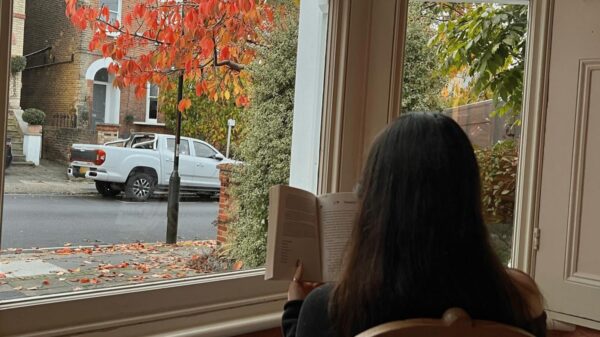Staff Writer TJ Sari offers deep insights on Bali’s over tourism problem, examining its cultural and environmental impacts.
The UK’s role in global tourism
Travelling is exciting. Every year, millions of people plan a visit to anywhere but home. The Office for National Statistics (ONS) reported that UK residents made 86.2 million visits abroad in 2023, marking a 21.4% increase from 2022. Tourism generally comes with expectations of etiquette, and remembering that you are in someone else’s home.
Bali’s troubled paradise
Unfortunately, for Bali, this expectation of etiquette has not been met. Back in late August, Bali’s Coordinating Maritime Affairs and Investment Minister, Luhut Binsar Pandjaitan, expressed concern regarding the approximately 200,000 foreigners currently living in Bali, as their influx has been connected to crime, over-development and competitive employment. “Foreign tourists who bring problem here, such as narcotics, gangs… we don’t want them to enter Bali anymore,” he said in a video on his Instagram.
Last year, Bali was forced to deport up to 340 foreigners, primarily from Russia, the USA, the UK and Nigeria from the island over violations including overstaying and nudity in sacred spaces. This is nearly an 81% increase from deportation numbers in 2022, and hints at a deeper problem Bali is facing related to travellers’ attitudes. Considering that many of its visitors seem to remain ignorant regarding their impact on the island, the needs, norms, and struggles of locals largely go undiscussed.
Damage incurred through healing
Recently, the preconceived idea of Bali as a “spiritually healing experience” has picked up wind and shifted the conversation on social media, producing much commentary on why so many tourists end up finding a permanent home on the island.
A search for ‘Balinese spiritual healing’ reveals multiple blogs, mostly ran or populated with posts by tourists who have visited the island, painting a clear picture of why. “Bali has its own delicious flavour of spiritual practice… that makes Bali a unique place to connect to the divine,” one of these results, The Eden Magazine, says, in a written piece titled ‘The Divine Path Discovering Inner Connection in Bali, Indonesia‘. Written by Jan Wakefield, M.A., the language used is not unique to this blog alone. There are countless similarly-tuned sites, each one detailing near-identical stories.
The problem with this trend is its objectification and misrepresentation of centuries-old practices, by misconstruing experiences that “heal” with physically therapeutic ones, such as spa retreats. In 2023, Bali had to begin plans to ban people, both locals and foreigners, from climbing the mountains after an edict from the island’s cultural and religious leaders.
It does not help that trusted news providers, such as the BBC, also promote this line of thinking, albeit in a more formal manner through Travel. In an article from January 2024, the BBC’s reportage on Balinese spa experiences spotlighted a conversation with Bali-based wellness and travel writer Kathryn Romeyn. Romeyn, who is originally from Los Angeles, built her “dream home” on the island.
Permanent vacation is unsustainable
Buying land on foreign soil requires consideration for possible negative impacts. Especially when moving to a country with a culture or economy vastly different to one’s home, inconsiderate property-building can place strains on locals and their environment. The Jatiluwih Rice Terraces, for example, are being threatened by urban encroachment and overtourism. With 65% of Bali’s groundwater going into sustaining tourists’ needs, heritage sites alike take the brunt of the damage.
Meanwhile, areas like Canggu are the newest victims of overdevelopment, with academics expressing concern for what it means for both locals and tourists alike. “The area is suffering from massive traffic jams because there’s no master plan,” says Nyoman Sukma Arida, the vice dean of the tourism faculty at Universitas Udayana in Bali.
A search for ‘Canggu’ provides information on its surfing culture and its night life scene. One of the area’s traditional community leaders, Made Kamajaya, highlights how this alters and damages he environment its locals are used to: “We’re dealing with uncontrolled development, of which almost 90% disregards the environment… there’s no desire to plant trees. Waste management is non-existent.”
Where else have we seen this before?
This unexpected gentrification is seen with the encroachment of urbanisation and foreign attitudes lacking an understanding of everyday life on the island. For Balinese locals, this is especially concerning as indigenous communities have found themselves struggling to access sustainable amounts of basic needs, such as self-grown crops and clean water resources.
Similar problems have occurred in places like Hawaii, where overtourism has led to property prices and climate disasters that endanger locals. Now vulnerable to drastic climate change, its own locals have begun to question whether or not tourism’s value is worth the harm it brings to the island.
Bali’s case is still salvageable, but only if tourists are willing to change their attitudes and awareness of the issue receives more coverage. Especially in light of ‘Bali belly’ being coined a synonym for ‘traveller’s diarrhoea’, it is high time we reconsider how we treat tourism-dependent islands, and how to properly show respect to the ecosystem and its inhabitants.

















